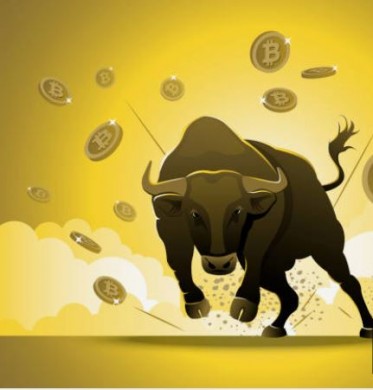I have said repeatedly that the stock market was due for a correction from the moment my sentiment indicator started to diverge in early March. As I write the FTSE 100 is down nearly 300 points from its 2013 high set on 12 March, thus it appears that the correction I predicted is underway. If we have entered a new phase of selling it’s likely that this won’t be a short term affair lasting a few weeks but instead a bear market of epic proportion.

You see, we have to pay for the mistakes made over the last five years. The central bankers have created money out of thin air; they blindly believed that the way to solve the debt crisis was to boost asset prices and keep the perpetual cycle of inflation churning. If you or I or anybody created fake money from a printing press we’d end up in jail for fraud. Central bankers on the other hand are being lauded for printing money to keep the markets happy. They are inadvertently creating a huge bubble in bonds and stocks, but that’s ok so long as prices go up and investors are satisfied.
Politicians and bankers are intelligent and well-educated people but they are playing a dangerous game with other people’s money. They believe they can perpetually control asset prices, unfortunately the truth is they can’t. The stock market doesn’t care if you have a first class degree in economics or if you’ve been to the best university in the world. When it’s time for the stock market to fall like a stone – it will do exactly that! We should be able to learn from history that people and their decisions create these cycles of boom and bust, unfortunately history repeats and there is nothing we can do to change this. Remember Gordon Brown’s famous quote “And we will never return to the old boom and bust.” That was just before the debt bubble burst in 2007.
We are now entering a new phase in the debt crisis,so it would make good sense to prepare for some volatility. I believe it’s going to get messy and it will be practically impossible for the average guy on the street to make any money. In a bull market everyone makes money, even those with no understanding of stocks and shares, you just buy the dips and ride the waves higher. Ask your taxi driver and he will probably tell you that he’s made a good return investing in stocks this year – it’s been that easy for everyone involved. But ‘buyer beware’ bull markets make people feel invincible, that there’s easy money for the taking until everything changes and profits disappear leaving many feeling humbled and broke. Personally, I don’t have any admiration for people who make money in bull markets, it’s easy money and doesn’t require much skill. For me, a great trader is one that makes money in chaotic conditions, when the markets go up, down or sideways. I don’t mind this volatility, in fact I have learnt how to trade profitably from these situations. I love chaos and volatility, this is my favourite ground.
Major corrections occur when least expected. Yesterday the FTSE 100 made a new low (below the 27 March low). You will recall that a few weeks ago most investors were bullish. As the market moves lower the bulls will turn bearish. Unfortunately it is often when they turn bearish that the market will start to rally again. This lack of sync between the stock market and investors is the reason why most investors are never prepared for the next move. This is also why they prefer trend following systems hoping that the trend will continue. Well, the trend followers have got it right since November but things are about to change. I’m predicting that the stock market will enter a period of instability characterised by increased volatility and sideways trends. Those who will succeed will need to buy low and sell high, that’s how traders survive and make money in a non-trending market. For example, when my timing indicators become oversold I’ll be buying the dip, and when they are overbought I’ll be selling the highs. Right now my timing indicator (13-day BTI) is near oversold so the FTSE 100 could become a buy in the next few days when this extended wave of selling is completed.
We can look to Elliot Wave for indications of how far this wave will go and for now that decline should continue. As I explained above, most investors are too late to recognise that this is the start of a downtrend. When it eventually becomes clear that the trend has turned down – the bulls will turn bears. At that moment the FTSE will experience a sharp decline (the third wave) and this is why third waves are the most powerful waves in a five-wave sequence, selling accelerates as fear and realisation begin to take hold. We are now in the midst of a third wave down, I expect the decline to accelerate from here as the bulls turn bearish.
Thierry Laduguie is Market Strategist at www.bettertrader.co.uk

 Hot Features
Hot Features













